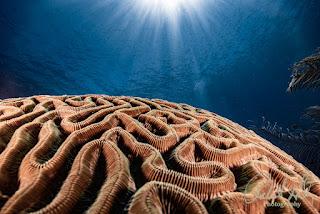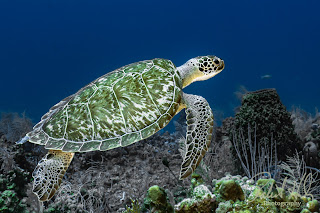Diving into a Sea of Opportunities: Underwater Photography as a Career
Introduction: In the vast expanse of career choices, few are as enchanting and immersive as underwater photography. Beyond the surface, a world of breathtaking beauty and mystery awaits those passionate about capturing the mesmerizing scenes beneath the waves. If you've ever dreamt of turning your love for the ocean into a fulfilling career, here are 10 areas of opportunity in underwater photography, the steps, and the approximate time required to dive into each one.
1. Scuba Diving Instructor with a Focus on Photography:
Process:
- Obtain scuba diving certifications: 3-6 months
- Basic Open Water Certification
- Advanced Open Water Certification
- Rescue Diver Certification
- Specialty certifications in underwater photography: 6-12 months
- Underwater Photography Specialty Course
- Teaching credentials: 6 months to 1 year
- Instructor Development Course (IDC)
- Emergency First Response Instructor Course
2. Marine Conservation Photography:
Process:
- Foundation in marine biology or environmental science: 2-3 years
- Bachelor's degree in marine biology or related field
- Collaboration with conservation organizations: Ongoing
- Volunteer work or internships
- Networking at marine conservation events
- Building a reputation and awareness: 1 year and beyond
- Creating and sharing compelling content on social media
- Participating in marine conservation campaigns
3. Travel and Adventure Photography:
Process:
- Building a diverse portfolio: 6 months to 1 year
- Travel to various locations and document experiences
- Experiment with different photography styles
- Networking with relevant industries: 6 months to 1 year
- Attend travel and adventure expos
- Connect with travel agencies, tour operators, and influencers
- Establishing a presence on social media: Ongoing
- Regularly share high-quality content
- Engage with the travel community
4. Commercial Underwater Photography for Brands:
Process:
- Building a strong portfolio: 1-2 years
- Collaborate on personal projects
- Work with local businesses for portfolio building
- Networking with marketing agencies and brands: Ongoing
- Attend industry events and conferences
- Collaborate with marketing professionals
- Staying updated on industry trends: Continuous
- Follow industry publications
- Attend workshops and conferences
5. Underwater Portrait Photography:
Process:
- Hone portrait photography skills: 6 months to 1 year
- Practice on land before transitioning underwater
- Learn about lighting and composition
- Specialized training in underwater portraiture: 6 months to 1 year
- Attend workshops or courses focused on underwater portrait techniques
- Building a portfolio: Ongoing
- Collaborate with models and continually refine your style
6. Documentary Filmmaking:
Process:
- Learning filmmaking and storytelling basics: 1-2 years
- Take filmmaking courses or online classes
- Practice storytelling through short films
- Investing in underwater videography equipment: 6 months to 1 year
- Research and invest in quality underwater videography gear
- Collaborating on or producing documentaries: Ongoing
- Seek opportunities to work on documentary projects
- Develop your own documentary ideas and projects
7. Scientific Research Photography:
Process:
- Background in marine biology or related field: 2-3 years
- Obtain a relevant degree
- Volunteer or intern with research projects
- Establishing connections with research institutions: Ongoing
- Attend scientific conferences
- Network with researchers and scientists
- Developing a niche in documenting scientific expeditions: 1-2 years
- Showcase your work at scientific events
- Collaborate with research teams on expeditions
8. Stock Photography:
Process:
- Building a comprehensive collection: 6 months to 1 year
- Focus on diverse subjects and styles
- Ensure high-quality and marketable images
- Registering with stock photography agencies: 3-6 months
- Research and submit applications to reputable stock agencies
- Optimizing metadata and keywords: Ongoing
- Regularly update metadata for improved discoverability
9. Underwater Photography Workshops and Tours:
Process:
- Gaining expertise in teaching: 6 months to 1 year
- Take teaching or instructional courses
- Practice teaching in non-underwater settings
- Planning and organizing workshops or tours: 6 months to 1 year
- Research and plan workshop itineraries
- Establish partnerships with dive centers or resorts
- Advertising and building a client base: Ongoing
- Utilize social media and online platforms
- Collect and showcase positive testimonials
10. Media Production for Educational Platforms:
Process:
- Developing educational content: 1-2 years
- Create comprehensive guides, tutorials, or courses
- Collaborate with educators to refine content
- Collaborating with online platforms: Ongoing
- Reach out to educational websites or platforms
- Explore partnerships for content distribution
- Creating tutorials, courses, or e-books: Ongoing
- Regularly update and expand educational offerings
- Engage with the online learning community
Remember, these timeframes are general estimates, and the actual duration may vary based on individual circumstances. Continuous learning, networking, and adapting to industry changes are crucial for success in the dynamic field of underwater photography.
Let me assist you in your underwater photographic journey with my upcoming online training course, which I will be announcing soon. If you are keen on acquiring more knowledge about it, kindly email me at bob@robertherb.com. You can also visit my website (Robert Herb Photography) to view some of my exemplary work.
I am eagerly anticipating your valuable feedback and suggestions.
Sincerely,
Bob Herb




Comments
Post a Comment
Please let me know your comments.